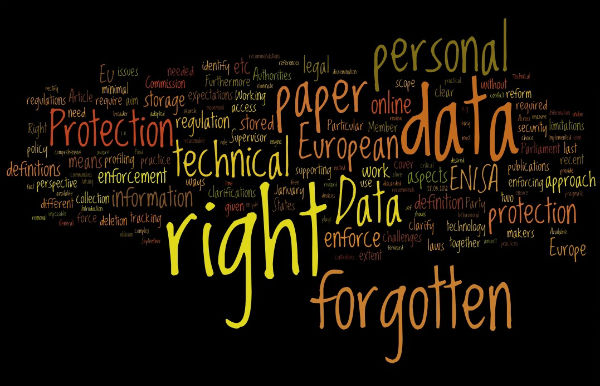
There’s a case that I really want local photojournalist Gagik Shamshyan and local online media outlets publishing news about automobile accidents to know about. I’m talking about the hundreds of Armenian media reports that include personally identifiable information which are published at breakneck speed on a daily basis.
In 2006, an 18-year-old girl named Nikki died in a car crash on a California highway. Photographs of the scene were taken by California Highway Patrol as part of standard procedure and emailed to colleagues. It was later discovered that a couple of California Highway Patrol employees forwarded the photos to their personal email accounts to show others.
The photos then made their way to an amateur news website and were also reposted on thousands of sites. The girl’s family launched court proceedings to get the photos off the Internet. They eventually won the case. But a Google search with Nikki’s first and last name still returns up to 1.5 million results — including the aforementioned gruesome photos. Why?
Web 2.0 Records Everything and Forgets Nothing
Web 2.0 enabled anyone with an Internet-connected mobile device to publish anything within seconds. It’s amazing. It also provided online news outlets with unlimited space for text, photos and video content. This is likewise amazing (I say this without a tinge of irony).
And now the important part: Web 2.0 brought everyone to a platform of publishing where nothing is forgotten. What does this change?
If in the past, news about car accidents were published in local newspapers with a short description and on average a single photograph and some time later automatically archived (of course, not completely disappearing), well today, any news about any individual that makes its way into the media is accessible to anyone with an internet connection with a single click, and through not only the original source of publication, but also thousands of reposts and mirror sites.
Experience shows that if there are inaccuracies in the initial publication (even a wrong name or reference) which were later changed, the original (inaccurate) content usually remains in the republished versions.
In addition, even if the text and photograph are completely removed from the source, they continue to remain available in search engine servers, appearing in search results.
It turns out that even with a single media report, moreover, one that is published with inaccuracies, we can once and for all affect anyone’s fate as well as the fate of those in connection with that person. I repeat, once and for all, which we witnessed in Nikki’s case…
The Fourth Estate Controlling Citizens?
“Remembering” has always been a problem in human history [1]; therefore, at the level of individuals and collective society, a choice is made to remember what’s “important.” And the current societal system is built on the basis of forgetting or letting go of some things, which allows people to change, to correct their mistakes, to become better — simply by “forgetting” some acts some time later.

Photo credit: Mixy Lorenzo
Today, online media — the fourth estate — is beginning to become a system that, in addition to the control of private life (on behalf of security agencies), commercial control (through debit and credit card transactions), and control of public space (through ubiquitous CCTV cameras in stores, airports, hotels, and elsewhere), controls citizens’ lives in the domain where nothing is ever forgotten and that which is missed by the aforementioned systems is published by the media in the name of speed.
Of course, it’s a proven fact that bad news is more demanded than good news [3]; consequently, Shamshyan’s report on a car crash that includes the driver’s identity (up to and including the vehicle’s license plate number) satisfies some people’s public interest, which is an important function of the media.
Nevertheless, it’s more important to understand what limit to the free spread of information and public interest can we speak of when the right to privacy becomes complicated in the all-remembering Internet?
Online media for the benefit of people or to do harm?
Of course, I can make long and eloquent speeches about ethics and remind readers of the media’s primary function, to serve members of the public, and not work against them. The European Union has decided to provide a practical solution to the matter, which if developed to a best case scenario might be good if it also has an effect on Armenia’s online space.
And so in January 2013, the European Commissioner for Justice, Fundamental Rights, and Citizenship, Viviane Reding, announced the European Commission’s proposal [4] to introduce new data protection reform, the Right to be Forgotten, which through principled and technological solutions attempts to regulate the protection of individuals with regard to the processing of personal data and the free movement of such data in the world of Web 2.0.
Perhaps over time people will learn to live with an Internet that remembers everything and news outlets that “control” them, but simply put, it wouldn’t be a bad thing if they literally censored themselves. Whatever happens, online media representatives have to constantly ask themselves: am I working for the benefit of people or to harm people?
Shushan Harutyunyan
[1] Viktor Mayer-Schönberger, “Delete: The Virtue of Forgetting in the Digital Age”, Princeton University Press 2010
[2] Ray Williams, “Why we love bad news”, Psychology Today, 2010
[3] Jeffrey Rosen, “The Right to Be Forgotten”, Stanford Law Review, 2013
The views expressed in the column are those of the author's and do not necessarily reflect the views of Media.am.

Add new comment
Comments by Media.am readers become public after moderation. We urge our readers not to leave anonymous comments. It’s always nice to know with whom one is speaking.
We do not publish comments that contain profanities, non-normative lexicon, personal attacks or threats. We do not publish comments that spread hate.